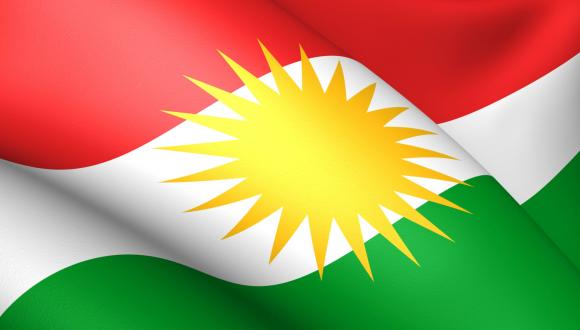Expert Analysis: Turkey and the Kurdish conundrum
Turkey and the Kurdish conundrum: Implications for Turkey's foreign relations
by Ofra Bengio
TEL AVIV NOTES, Volume 7, Number 15
Moshe Dayan Center for Middle Eastern and African Studies

The Turkish-Kurdish peace process which was launched in March this year stands to revolutionize Turkish domestic politics. No less importantly, it holds far-reaching implications for Turkey’s foreign relations. Indeed, the Kurdish question has for many years been the domestic issue which has had the greatest impact on Turkey’s relations with both neighboring states and the international community. Muhittin Ataman, who analyzed the impact of the Kurdish issue on Turkish foreign relations over the course of eight decades, concluded that from the very inception of the Turkish republic in 1923, the Kurdish question occupied “a significant place in Turkish foreign policy.” For his part, Mesut Ozcan maintained that during the 1990s, this issue was central to Turkey’s foreign policy concerns and led “to security dominated policy preferences with international actors and neighboring countries.”
Indeed, the Kurdish question has had implications for many aspects of Turkey’s foreign relations. Turkey's image in the world as the only Muslim democracy in the region has been severely tarnished by its record of human rights abuses against the Kurds. The EU used the Kurdish issue as a justification, if not a pretext, for blocking Turkey’s accession as a full member to the European club. Other countries such as Russia, Greece, and Cyprus have played the Kurdish card on numerous occasions in order to embarrass and even weaken Turkey. In the aftermath of the 2003 Iraq war, relations between Turkey and the U.S. were strained by the complexities of the Kurdish issue. Most importantly, the Kurdish issue has affected Turkey's relations with three of its immediate neighbors: Syria, Iraq, and Iran, all of which have Kurdish minorities.
One may make the following arguments regarding these relations, and their connection to the Kurdish issue:
1. Historically, the Kurdish problem has had paradoxical effects on Turkey’s relations with Syria, Iraq, and Iran. At times, the Kurdish issue provided a motive for a tacit or even an open alliance with neighboring governments, while at other times it was a cause of severe tension and rivalry.
2. The Kurdish issue constitutes for Turkey a Gordian knot linking together domestic and regional issues. Today, the problem is escalating because there is a surge of Kurdish nationalist activism in all four parts of Greater Kurdistan (portions of Turkey, Iraq, Syria, and Iran).
3. The scope of trans-border mutual influences and interactions throughout Greater Kurdistan increased significantly in recent years, and forced Turkey to devise a new strategy to cope with the issue.
4. The collapse of Turkey's regional alliances during the last few years has left Ankara without friendly neighboring states to assist it in dealing with the issue.
Generally speaking, the impact of the Kurdish issue on Turkish foreign policy reflects the standing of the Kurds in Turkey at a given historical moment. Up until the 1970s, the Kurdish issue was largely dormant, and accordingly had little effect on foreign policymaking. Subsequently, tensions surrounding the Kurdish question in Turkey rose steadily, with commensurate repercussions for Turkish foreign policy. Moreover, the Kurdish issue became a tool to be used against Turkey by other actors in the region and beyond.
The shifting sands of Turkish alliances
In the past, Turkey could count on alliances or cooperation agreements with its neighbors to help it contain the Kurds. Examples include the 1937 Saadabad Pact, the 1955 Baghdad Pact, the hot pursuit agreement with Iraq against the Kurdistan Workers Party (Partiya Karkeren Kurdistan, PKK) during the Iran-Iraq war in the nineteen eighties, and tacit cooperation with Syria and Iran during the first decade of the 2000s. The irony of the current situation is that of all its neighbors, Turkey now has to rely on the emerging autonomous Kurdish entity in neighboring Iraq to help it cope with its Kurdish problem. Moreover, Turkey’s complications with the Kurdish question have mushroomed, involving the Iraqi, Syrian, and Iranian Kurdish fronts, in addition to its domestic one, with all four being interrelated.
How and when did this dramatic change take place? First, Turkey’s close ties with Iraq began to wither away, beginning with the 1991 Gulf war and reaching an additional low with the U.S. war to topple Saddam Husayn’s regime in 2003. The end of 80 years of Sunni Arab rule in Iraq generated a profound alteration in the geostrategic map of the region. In the aftermath of 2003, Turkey gradually shifted its cultivation of close ties from Baghdad to Irbil, making the Kurdistan Regional Government (KRG) its main ally in the region, rather than the weakened, and Shi`ite dominated central government of Iraq.
This paradoxical shift can be explained thusly: Ideologically, the deepening Sunni-Shi`i divide between Ankara and Baghdad caused growing estrangement between the two states. Economically, the KRG’s oil assets, internal stability and expanding economy offered a more favorable environment for Turkish investments than the unstable Arab part of Iraq. Strategically, Iraq essentially lost its sovereignty over the Kurdish region, which meant that it was the KRG that controlled the Iraqi-Turkish border, requiring Turkey to make the KRG, and not the government in Baghdad, the address for discussions on security issues. Politically, Turkey hoped to use its improved relations with the KRG as a means of pacifying its own Kurds, particularly since many of the PKK’s bases are located in the KRG.
The second arena which compelled a dramatic transformation of Turkish foreign policy choices and priorities was Syria. During the 1980s and 1990s, Turkish-Syrian relations had been severely poisoned by the Kurdish issue. Syria was determined to use the PKK as a tool against Turkey because of long standing problems between the two, including Turkey’s upstream exploitation of Euphrates River water, to Syria’s detriment. Syria provided shelter and support to the PKK beginning in the early 1980s, and gave it a green light to launch attacks from its territory against Turkish targets.
At the end of the 1990s, Turkey’s threats to employ force against Syria compelled Syria to cease providing shelter to the PKK’s leader Abdullah Öcalan and end its support of the PKK. The decision led to a new era of unprecedented cooperation between Ankara and Damascus. But the upheaval in Syria which started in early 2011 and Turkey’s decision to turn against the Asad regime opened up a pandora’s box for Turkey. This consisted of four interrelated problems:
- A Kurdish autonomous zone was established in Syria, headed by the Democratic Union Party (Partiya Yekitiya Demokrat, PYD), which is affiliated with the PKK. This raised, the possibility of the PKK’s opening a new Kurdish front against Turkey on its southern border.
- The developments in Syrian Kurdistan had an immediate effect on the Kurdish movement in Turkey, which increased its pressure on the AKP government through demonstrations and protests, as well as by escalating PKK attacks on Turkish targets.
- Turkey’s shift away from Syria ended the decade-old Turkey-Iran-Syria axis, and signaled an open rift with Iran over Syria.
- Last but not least, Ankara's relations with Baghdad suffered a severe blow following the eruption of events in Syria, because the Maliki government in Baghdad, in contrast to Ankara, supported the Asad regime. As a result, one may speak of the emergence of an informal anti-Turkish axis made up of Iran, Iraq, and Syria.
Is Turkey allying with the Kurds?
How did Turkey attempt to solve its Kurdish conundrum? First, it dramatically changed its approach toward the KRG. Instead of considering it part of the Kurdish domestic problem in Turkey, it was now viewed as the key to its solution. Indeed, already in 2009, Turkey launched a two-track Kurdish policy, simultaneously initiating an opening to both its own Kurds and to the KRG. While the first failed to be consummated, the second proved to be extremely successful.
The launching of the Turkish-Kurdish peace process within Turkey in early 2013 was another attempt by the Ankara authorities to kill a number of birds with one stone. Turkey sought to further strengthen relations with the KRG, and invite it to be the primary broker of peace with the PKK and also to act as a liaison to Syrian Kurds. However, this bold move carries with it considerable risk. Iran regarded the Turkish-Kurdish peace process as a threat to its interests because it feared a possible spillover effect on its own Kurds. Hence, it promised support to the PKK if its units did not withdraw from Turkey to KRG territory, as had been agreed upon by Ankara, the PKK and the KRG. Though the PKK did not accept Iran’s offer, Iran still holds certain cards against Turkey in the form of PKK bases which it can activate at any time.
Regarding Syria, the PKK already has a strong presence there through its PYD branch, including its military organization, the People's Protection Unit (Yekineyen Parastina Gel; YPG). Together, the PYD and YPG control 18 cities and towns, feeding Turkish perceptions of a heightened threat. And even though Syrian Kurdish groups may not initiate hostilities against Turkey, they will certainly remain a factor in Turkey’s strategic calculus. Turkey attempted to break the PYD-YPG hegemony among Syria’s Kurds by inciting Islamist groups, but with no great success. It seems that Turkey has now concluded that the best way to contain the PYD is through a tight embrace, indicated by the visit of PYD’s co-chairman, Salih Muslim, to Turkey at the end of July.
The KRG’s acceptance of PKK militants in its territory, and the role it has been playing in pacifying the Kurds in Syria, may in the longer run become a useful instrument to counter any possible future Turkish encroachment on KRG territory. In other words, the KRG's new regional role as intra-Kurd broker may grant it, and the Kurds as a whole, an additional means of leverage vis-à-vis Turkey.
Finally, even though the PKK has decided to withdraw its forces from Turkey, should the reconciliation process with the Turkish authorities bog down, the threat that they might pose from outside the country is no less dangerous than that from within. One thing is clear: the PKK is not going to be dissolved.
Conflicting visions regarding the solution
For Turkey, the importance of solving the Kurdish issue for its foreign relations, oscillates between two poles, one which views solving the Kurdish question as a key to Turkey’s regional leadership, the other, which fears the consequences of the “insidious Kurdish Spring” and “appeasement” of the PKK for the regime and the state.
These contradictory visions regarding the Kurdish problem highlights the complexity of the Kurdish issue in Turkey, and perhaps even more so the polarization and fragmentation in Turkish society regarding the subject. As for the Kurds, any solution will have to take into account the fact that they have become a power to reckon with. And if in the past, scholars of the region spoke of “Britain’s moment” or the “pan-Arab moment”, one should now speak of the Kurds’ moment in the Middle East.
Prof. Ofra Bengio is a senior research fellow at the Moshe Dayan Center for Middle Eastern and African Studies.
 TEL AVIV NOTES is an analytical update on current affairs in the Middle East, published by Tel Aviv University’s Moshe Dayan Center for Middle Eastern and African Studies, with the support of the V. Sorell Foundation.
TEL AVIV NOTES is an analytical update on current affairs in the Middle East, published by Tel Aviv University’s Moshe Dayan Center for Middle Eastern and African Studies, with the support of the V. Sorell Foundation.






